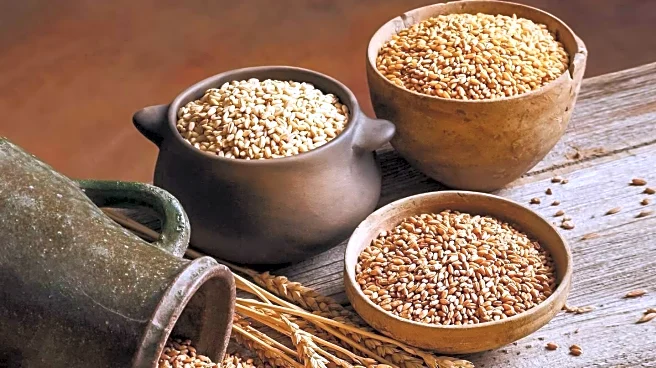What is the story about?
What's Happening?
Registered associate nutritionist Eli Brecher emphasizes the nutritional benefits of whole grains, which are the edible seeds of grasses like wheat, oats, and rice. Whole grains contain three parts: the bran, germ, and endosperm, providing a rich source of fiber, B vitamins, antioxidants, and minerals. Brecher notes that whole grains can reduce the risk of type 2 diabetes, cardiovascular disease, and certain cancers. They also support gut health, energy metabolism, and overall well-being. The article highlights eight grains, including oats, quinoa, and brown rice, each offering unique health benefits. For instance, oats are rich in beta-glucan, which supports gut health and cholesterol balance, while quinoa is high in protein and contains all essential amino acids.
Why It's Important?
Incorporating whole grains into the diet is crucial for addressing common nutritional deficiencies, particularly fiber intake. Whole grains play a significant role in maintaining a healthy gut microbiome, which is linked to various aspects of health, including immunity and mood regulation. As dietary habits shift towards more processed foods, promoting whole grains can help counteract the negative health impacts associated with refined grains. This focus on whole grains aligns with public health initiatives aimed at reducing chronic disease prevalence and promoting sustainable dietary practices. By understanding the benefits of different grains, individuals can make informed choices that support long-term health.


















